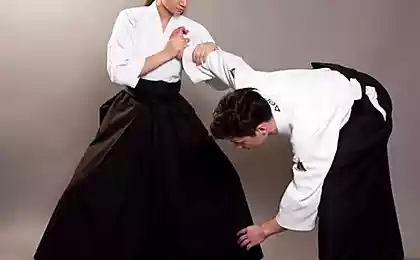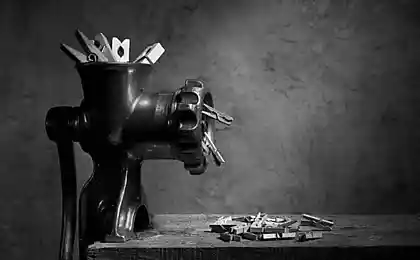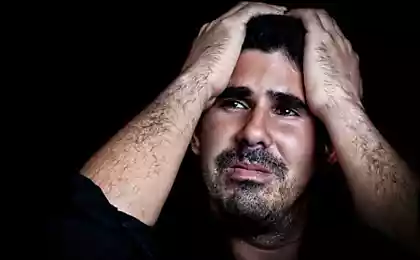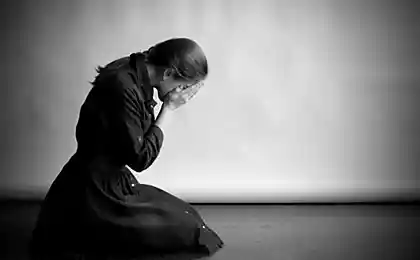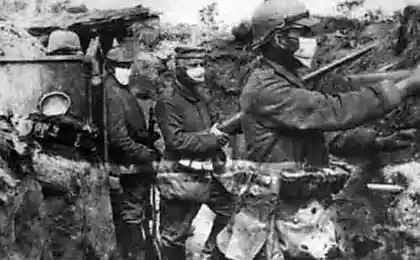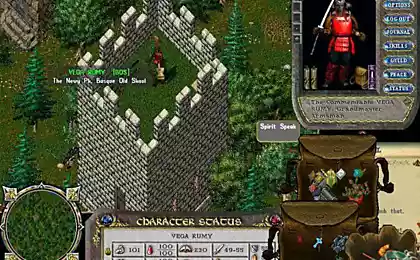595
Panic attacks: what to do
Panic attack (PA) represents an unexplained, painful to the patient an attack of illness, accompanied by fear or anxiety in combination with various vegetative (somatic) symptoms.
Domestic for a long time doctors have used and now use the terms "autonomic crisis", "sympathoadrenal crisis", "cardioneurozy", "VVD (vegetovascular dystonia) krizovym over", "NDCs — neurocirculatory dystonia", reflecting the ideas about the human autonomic nervous system.
The terms "panic attack" and "panic disorder" is internationally recognized and entered in the International classification of diseases 10th revision.
Wikipedia
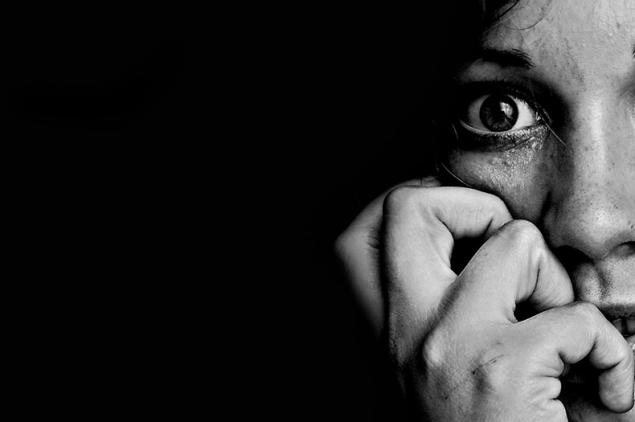
Having a panic attack, according to experts, occurs as the body's response to stress, as a reflection of the internal struggle of man with the aggressive manifestations of the external world.
In addition, an important reason for panic disorder are considered repressed psychological conflicts that do not find exit can not be recognized and allowed by the person due to various reasons.
Panic attacks often occur in people with a weak system of protection against stresswhen the nervous system is not enough of specific substances (serotonin and norepinephrine), which helps to withstand the physical and emotional discomfort.
As a rule, up to a certain point such people manage to maintain psycho-emotional balance, but when the problems and stresses reach their critical mass, panic attacks raining down on them, the ninth wave.
According to doctors, a triggering factor for panic in this case might be anything from any emotionally significant situation to a simple lack of sleep. Interesting from a psychological point of view is the fact that panic condition usually do not manifest themselves in moments of objective threats, therefore, to their "carriers" at first they absolutely inexplicable.
For example, a person steps on the escalator in the metro, and suddenly he begins furiously pounding heart, sweaty palms, breath and legs. After some time, this attack is repeated, then another and another, until finally the panic turns into a real problem: man can not bring myself to enter the subway, getting into power for fear of the emergence of the next attack.
According to the latest data of psychologists, more than 5% of the population of megacities prone to panic attacks. In this regard, the experts consider it extremely important to explain to patients prone to panic attacks, IT is NOT DANGEROUS TO LIFE.
In order to reliably say that a person is suffering opinionsa attack need according to several factors.
During an attack observed at least four of the following symptoms:
— Pulsation, palpitations, rapid pulse.
— Sweating.
— Chills, tremor, feeling of inner trembling.
— Feeling of lack of air, shortness of breath
— Dyspnea or shortness of breath.
— Pain or discomfort in the left half of the chest.
— Nausea
— A sensation of dizziness, instability, lightness in the head, or light-headedness.
— The feeling of derealization, depersonalization.
— Fear to go mad or to make an uncontrolled action.
— The fear of death.
— Sensation of numbness or tingling (paresthesia) in the extremities.
— The feeling of passing through the body waves of heat or cold.
There are other symptoms not listed above: abdominal pain, feeling of a lump in my throat, impaired gait, impaired vision or hearing, stiffness in hands or feet, disorder of motor function.
Currently, experts believe the best way to cope with panic attacks — a combination of medication (using drugs) and drug-free treatment. Medicinal method is to select the right doctor of antidepressant that is usually taken for a long period – from three months.
With regard to non-pharmacological treatments, one should first allocate counseling, and sustainable way of life with the motto: "less stress, more positive emotions!".
As a rule, the method works on "hurrah". While drugs are likely to provide the basis for the normal functioning of the autonomic nervous system, psychotherapy will help you to find the root causes of stress and to train the client to master their emotions. And soon you can forever say to yourself: "don't panic!".
First aid for a panic attack! Or what to do?
1. If you feel that you are choking, it's not, it's probably hyperventilating, just grab a pack any, which will be on hand, from paper to plastic, and breathe in that easily, the main thing to try to do the longest exhale.
2. Smile! Stretch the face into a smile and your mood will follow the muscles of your face, it will help to calm down.
3. Focus your attention on your breathing, count how many times you will quietly count during inhalation and exhalation. That a long inhalation or exhalation? Now breathe on the account is equal to the number of times according to the scheme 8+8 for example.
4. Move the focus from bodily sensations and thoughts in a stable external reality. For example, carefully count the trees around him, the stairs, the leaves on the branch that falls into your field of vision.
5. If it is within your power to change the situation causing the alarm, get up and leave the room, society, etc.
6. During a panic attack, try to observe and realize what the words, sounds and circumstances you have this condition. Identify the source — what fear makes you panic.
7. Within three months it is possible to poprinimat sedatives and non-habit forming doctor's prescription. But not longer! In parallel, it is necessary to consult a psychologist, you need to learn how to observe and regulate their emotions naturally. Without resorting to drugs, in most cases this can be done.
8. Believe in yourself, panic attacks don'T DIE, well, that's right never, so you are probably ever going to die, but not now, and not from a panic attack.
9. Dancing, yoga, swimming is something that should be addressed in this period, attention to your body and the slosh of adrenaline and energy via physical exercise, that is exactly what I need.
10. A positive attitude to life, willingness to change and to change their lives to become happy! This is very important, this is what will get you out of these troubles.
11. If you were near a person who has a panic attack, stay calm and confident, breathe, clear the "importance" and "seriousness of what is happening, if appropriate joke, do not take, do not worry yourself, "okay," hug the person, firmly grasp the razor hand and say "I'm with you"!
And remember that medication ways you can only mute the problem, to finally untie the Gordian knot can only deep inner work.published
7 truths that will make you stronger
8 words, that is to say less
P. S. And remember, only by changing their consumption — together we change the world! ©
Source: www.free-apple.ru/index.php/myworks/artcls/81-panika
Domestic for a long time doctors have used and now use the terms "autonomic crisis", "sympathoadrenal crisis", "cardioneurozy", "VVD (vegetovascular dystonia) krizovym over", "NDCs — neurocirculatory dystonia", reflecting the ideas about the human autonomic nervous system.
The terms "panic attack" and "panic disorder" is internationally recognized and entered in the International classification of diseases 10th revision.
Wikipedia

Having a panic attack, according to experts, occurs as the body's response to stress, as a reflection of the internal struggle of man with the aggressive manifestations of the external world.
In addition, an important reason for panic disorder are considered repressed psychological conflicts that do not find exit can not be recognized and allowed by the person due to various reasons.
Panic attacks often occur in people with a weak system of protection against stresswhen the nervous system is not enough of specific substances (serotonin and norepinephrine), which helps to withstand the physical and emotional discomfort.
As a rule, up to a certain point such people manage to maintain psycho-emotional balance, but when the problems and stresses reach their critical mass, panic attacks raining down on them, the ninth wave.
According to doctors, a triggering factor for panic in this case might be anything from any emotionally significant situation to a simple lack of sleep. Interesting from a psychological point of view is the fact that panic condition usually do not manifest themselves in moments of objective threats, therefore, to their "carriers" at first they absolutely inexplicable.
For example, a person steps on the escalator in the metro, and suddenly he begins furiously pounding heart, sweaty palms, breath and legs. After some time, this attack is repeated, then another and another, until finally the panic turns into a real problem: man can not bring myself to enter the subway, getting into power for fear of the emergence of the next attack.
According to the latest data of psychologists, more than 5% of the population of megacities prone to panic attacks. In this regard, the experts consider it extremely important to explain to patients prone to panic attacks, IT is NOT DANGEROUS TO LIFE.
In order to reliably say that a person is suffering opinionsa attack need according to several factors.
During an attack observed at least four of the following symptoms:
— Pulsation, palpitations, rapid pulse.
— Sweating.
— Chills, tremor, feeling of inner trembling.
— Feeling of lack of air, shortness of breath
— Dyspnea or shortness of breath.
— Pain or discomfort in the left half of the chest.
— Nausea
— A sensation of dizziness, instability, lightness in the head, or light-headedness.
— The feeling of derealization, depersonalization.
— Fear to go mad or to make an uncontrolled action.
— The fear of death.
— Sensation of numbness or tingling (paresthesia) in the extremities.
— The feeling of passing through the body waves of heat or cold.
There are other symptoms not listed above: abdominal pain, feeling of a lump in my throat, impaired gait, impaired vision or hearing, stiffness in hands or feet, disorder of motor function.
Currently, experts believe the best way to cope with panic attacks — a combination of medication (using drugs) and drug-free treatment. Medicinal method is to select the right doctor of antidepressant that is usually taken for a long period – from three months.
With regard to non-pharmacological treatments, one should first allocate counseling, and sustainable way of life with the motto: "less stress, more positive emotions!".
As a rule, the method works on "hurrah". While drugs are likely to provide the basis for the normal functioning of the autonomic nervous system, psychotherapy will help you to find the root causes of stress and to train the client to master their emotions. And soon you can forever say to yourself: "don't panic!".
First aid for a panic attack! Or what to do?
1. If you feel that you are choking, it's not, it's probably hyperventilating, just grab a pack any, which will be on hand, from paper to plastic, and breathe in that easily, the main thing to try to do the longest exhale.
2. Smile! Stretch the face into a smile and your mood will follow the muscles of your face, it will help to calm down.
3. Focus your attention on your breathing, count how many times you will quietly count during inhalation and exhalation. That a long inhalation or exhalation? Now breathe on the account is equal to the number of times according to the scheme 8+8 for example.
4. Move the focus from bodily sensations and thoughts in a stable external reality. For example, carefully count the trees around him, the stairs, the leaves on the branch that falls into your field of vision.
5. If it is within your power to change the situation causing the alarm, get up and leave the room, society, etc.
6. During a panic attack, try to observe and realize what the words, sounds and circumstances you have this condition. Identify the source — what fear makes you panic.
7. Within three months it is possible to poprinimat sedatives and non-habit forming doctor's prescription. But not longer! In parallel, it is necessary to consult a psychologist, you need to learn how to observe and regulate their emotions naturally. Without resorting to drugs, in most cases this can be done.
8. Believe in yourself, panic attacks don'T DIE, well, that's right never, so you are probably ever going to die, but not now, and not from a panic attack.
9. Dancing, yoga, swimming is something that should be addressed in this period, attention to your body and the slosh of adrenaline and energy via physical exercise, that is exactly what I need.
10. A positive attitude to life, willingness to change and to change their lives to become happy! This is very important, this is what will get you out of these troubles.
11. If you were near a person who has a panic attack, stay calm and confident, breathe, clear the "importance" and "seriousness of what is happening, if appropriate joke, do not take, do not worry yourself, "okay," hug the person, firmly grasp the razor hand and say "I'm with you"!
And remember that medication ways you can only mute the problem, to finally untie the Gordian knot can only deep inner work.published
7 truths that will make you stronger
8 words, that is to say less
P. S. And remember, only by changing their consumption — together we change the world! ©
Source: www.free-apple.ru/index.php/myworks/artcls/81-panika
